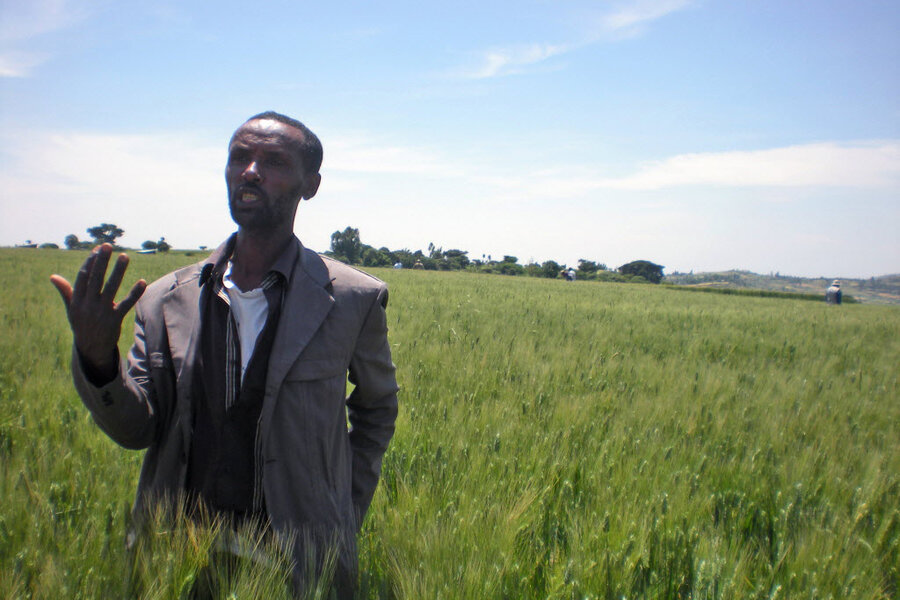Easing restrictions and barriers could improve African food trade
Loading...
| Washington
Africa could avoid food shortages if it reduces the tangled web of rules, fees and high costs strangling regional food trade and by putting large swathes of uncultivated land to productive use, a World Bank report said on Wednesday.
Just 5 percent of Africa's cereal imports are now provided by African farmers, according to the report released on the eve of an African Union summit on agriculture and trade in Ethiopia.
"Too often borders get in the way of getting food to homes and communities which are struggling with too little to eat," said Makhtar Diop, World Bank vice president for Africa.
The bank estimated that 19 million people are in danger of hunger and malnutrition in West Africa's Sahel region. Yet, removing cross-border restrictions could help avoid food crises if farmers were allowed to trade more easily with each other and get food to communities facing shortages.
In addition, the World Bank estimated that fewer restrictions on food trade could generate an estimated $20 billion in annual earnings for African governments.
Food trade barriers also increase the cost to the consumer and the farmer, the World Bank said. For example, farmers on holdings in Africa who sell surplus harvest typically receive less than 20 percent of the consumer price of their produce, with the rest being eaten up by various transaction costs and post harvest losses.
"This clearly limits the incentive to produce for the market," the World Bank said.
Soaring global food prices in 2008, which triggered social unrest in several African countries, highlighted the problem of decades of underinvestment in agriculture in Africa. It also stimulated interest among investors in Europe, the Middle East and Asia in Africa's untapped farming potential. Fears of land grabbing also increased.
The World Bank said high transport costs were an impediment to more food trade across Africa, especially for small farmers. While poor roads and lack of infrastructure are a problem in Africa, transport cartels are also common with little incentive for investment in modern trucks.
Countries in West Africa could halve their transport costs within 10 years if governments undertook policy reforms that spurred more competition, the World Bank said. Roadblocks and bribes at border posts also add to the cost of getting food to markets.
The World Bank report said yields for many crops in Africa are a fraction of what farmers are achieving elsewhere in the world. More food trade in Africa could help raise yields, spread new technology and create jobs, it added.
The Bank said rules and regulations are preventing African farmers from using higher yielding seeds and better fertilizers. In some countries it can take two to three years for new seed varieties to be released, even if they are being used elsewhere in Africa.
"The challenge is how to create a competitive environment in which governments embrace credible and stable policies that encourage private investors and businesses to boost food production across the region," said Paul Brenton, World Bank economist and main author of the report.







